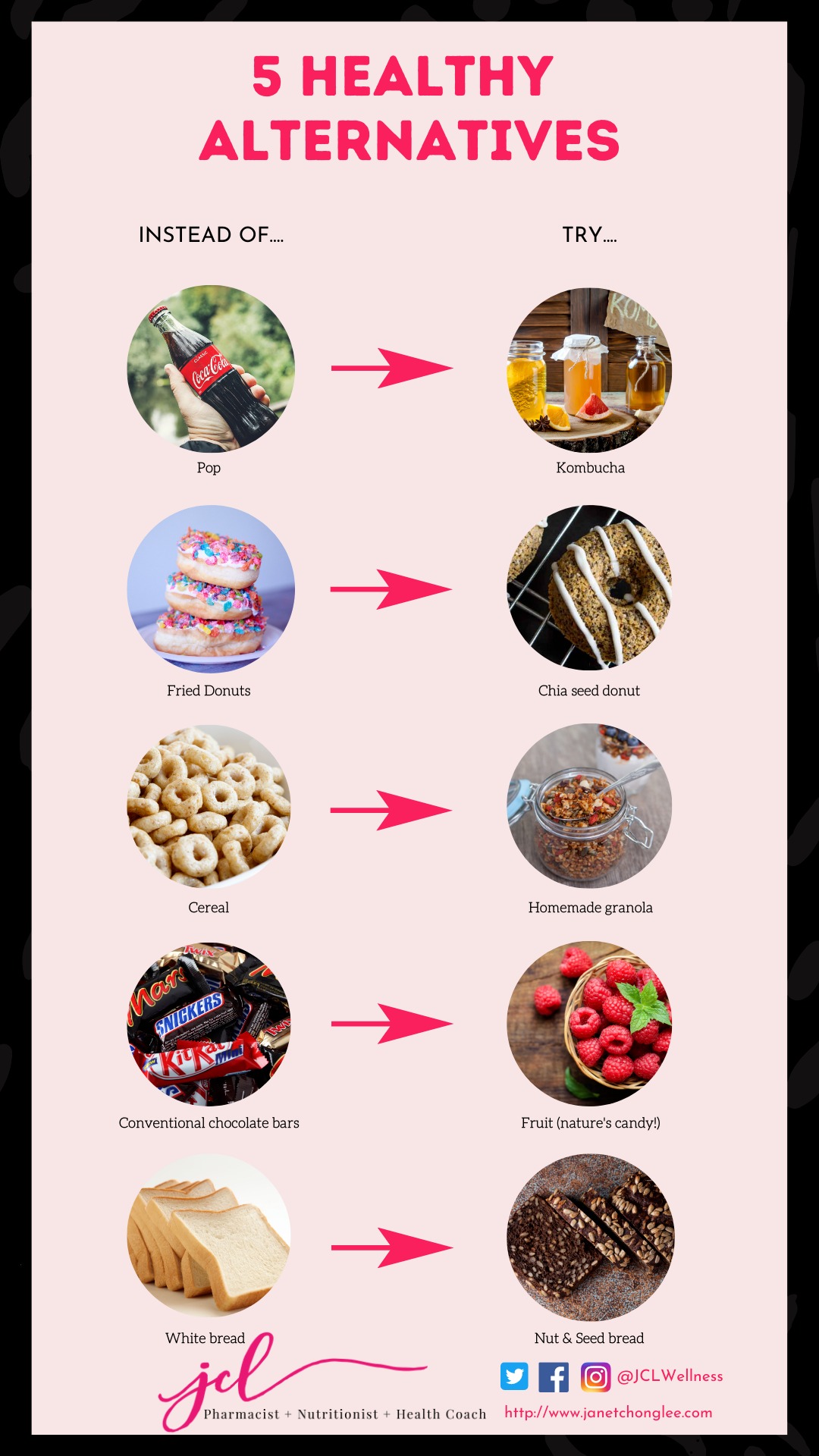Alzheimer’s disease (AD) is a progressive neurodegenerative disease that affects older adults and is the most common form of dementia.
December 1st, 2020

Alzheimer’s disease (AD) is a progressive neurodegenerative disease that affects older adults and is the most common form of dementia. The World Health Organization (WHO) has declared dementia as a global public health priority and that it is currently one of the leading causes of disability and dependency of other adults worldwide.There are currently around 50 million people worldwide living with dementia and there are 10 million new cases each year.
The following five foods can contribute to neuroinflammation (i.e. inflammation in the brain) and/or oxidative stress. Both are key culprits in the pathophysiology of Alzheimer’s Disease.
Sugar-sweetened soft drinks (or any beverage with added sugars) spikes blood sugars and do not have any nutritional value. These beverages are pro-inflammatory and contribute to metabolic syndrome as well as insulin resistance, increasing the risk of Alzheimer’s Disease. Refined sugar is inflammatory in the body; it has been implicated in a range of inflammatory diseases (i.e. diabetes, non-alcoholic fatty liver, obesity, and even cancer). Healthy fizzy alternative: Kombucha (remember to look at the ingredients and nutritional label). While kombucha does contain sugar, the sugar is for the yeast to consume; its sugar content compared to a glass of orange juice or Coke is much lower and kombucha also contains probiotics and antioxidants.
Fried doughnuts (especially those that you buy at the supermarket) contain trans fats (partially hydrogenated vegetable oils). Trans-fat containing foods increase bad cholesterol (LDL-C), lower good cholesterol (HDL-C), and increase cardiovascular risk factors such as stroke and diabetes. Healthy alternative: Try these chia seed doughnuts instead!
Many cereals are touted as being “healthy”, but many of these contain added sugars and are highly processed. The lack of fibre, protein, and healthy fats in most cereals (like Cheerios) causes blood sugars to spike and subsequently crash a few hours later. They also are not nutritious, contribute to an inflammatory state, and increase cardiovascular risk factors. Just because something is labeled as healthy does not make it so. Reading the nutritional information and ingredient list is very important! Healthy alternative: This grain-free granola is sure to please and stabilize blood sugars!
Many chocolates and candies including Butterfinger contain a ton of refined sugar, corn syrup, AND high-fructose corn syrup. The first two ingredients listed for Butterfinger include: corn syrup (first ingredient) and sugar (second ingredient). Butterfinger is also made with vegetable oil. High fructose corn syrup can be found in many store bought cookies, cakes, pie crusts, and soda pop. This highly processed substance spikes blood sugars, offers no nutrition to our body, promotes an inflammatory state and contributes to cardiovascular risk factors. Healthy alternative: Fruit is nature’s candy. Choose seasonal, local, and organic (if possible) fruits to enjoy. Or choose an organic, fair-trade chocolate bar containing at least 70% cacao that is sweetened with natural sweeteners such as honey, stevia, or erythritol.
Many commercially prepared breads contain high-fructose corn syrup, vegetable and/or canola oil, and a whole bunch of other unsavory ingredients. Wonder Bread is not so wonderful; it contains sugar, soybean and/or canola oil, and vegetable monoglycerides.[i] These oils are often genetically modified (although I note that Wonderbread is now Non GMO Project Verified) and contain omega-6 which is pro-inflammatory. Two slices of Wonder Bread (white) contain 37g of carbohydrates, of which only 2g is fibre. It also doesn’t offer much in terms of healthy fats and protein. Thus, Wonder Bread (and many others) raise your blood sugars in a fast and furious way, promote inflammation, and may increase cardiovascular risk factors and the risk for Alzheimer’s Disease. Healthy alternative: Consider this “Life-Changing Loaf of Bread” from My New Roots instead.

The most difficult part of change often isn't the change itself, but saying goodbye to foods that you associate with happy memories, traditions, and beliefs. You are also left with thinking of how to replace said food. I can remember when my mom would make me a PB&J sandwich on 2 slices of Wonder Bread; there's no denying it was delicious. I also remember Trick or Tricking with my cousins and snack-sized chocolates were hands-down my favourite pick of the night (and chips!).
For myself, I'm not an all-or-nothing type of gal. However, I can confidently say that there are certain things I don't touch anymore. I haven't had a can of Coke or conventional pop since high school; I threw out my vegetable oil years ago and haven't looked back since. But, sometimes I might get a craving for a donut and I'll try to make my own or find the healthiest option that I can buy. For some people, they require 100% abstinence. For others, they have it less or make a healthy swap with something else.
Regardless of where you stand, I believe knowledge is power, and being aware of what you eat is one of the most powerful tools you can arm yourself with for the health and wellbeing of yourself and those you love. If you're interested in learning more about what foods to avoid, and what foods to incorporate more for brain health, drop me a line to get started today!
- Janet
Copyright © 2021 JCL Wellness.
All rights
reserved.